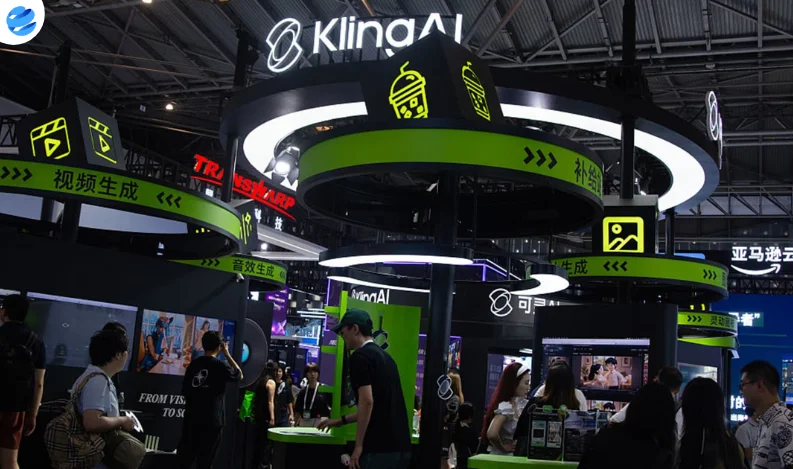China’s tech industry, already known for revolutionizing short-form content with TikTok, is now leading a new wave, AI-powered video creation.
Companies like Kuaishou, ByteDance, and Alibaba are quickly advancing generative AI tools that turn text or images into videos, aiming to reshape how digital content is produced, consumed, and monetized.
At the World Artificial Intelligence Conference in Shanghai, Beijing-based Kuaishou showcased the latest version of its platform, Kling AI, which now allows users to create clips from images or written prompts, complete with matching sound effects. The tool is already in use by more than 20,000 businesses, from advertisers to film creators.
A New Frontier for Video Content
Kling AI, launched publicly in June 2024, earned over $20 million in Q1 2025 alone. It supports global users, with its highest revenue coming from outside China, according to Zeng Yushen, head of operations at Kling.
“People don’t seem to care which country’s product it is,” said Zeng. “The technology is global.”
AI-generated video models are still early in development, but China is already seeing strong results. ByteDance, TikTok’s parent company, holds two of the top four spots in a global AI model ranking by Artificial Analysis. Kuaishou’s Kling AI stands in fifth place. Google and Amazon also have tools in the top five.
“Chinese firms are identifying pain points and solving them commercially,” said Paul Triolo, China expert at DGA-Albright Stonebridge Group.
Tools With Global Reach
China’s AI companies aren’t just working on entertainment. Tencent has developed Hunyuan World, which allows game developers to generate 3D visual environments using text. Alibaba recently released the Wan2.2 model, which lets users customize videos by adjusting camera angles, lighting, and more. The model has already been downloaded 5.4 million times.
Meanwhile, Baidu is preparing to launch its AI-powered digital human technology for wider industry use by October, after it helped drive $7.65 million in livestream sales over a six-hour broadcast.
Market Strength With Local Talent
Analysts credit China’s success in video AI to its vast domestic user data and engineering talent pool. According to UBS analyst Wei Xiong, generative AI is giving Chinese companies a path to scale content production, cut costs, and open new ways to generate revenue.
Still, limitations remain. Current models face hurdles with motion consistency, scene control, and video length. There’s also growing concern around the quality of AI-generated gaming content, as some developers face backlash from poor implementation.
“AI is reshaping the industry,” said Winston Ma, NYU law professor. “We’ve entered the age of AI as filmmaker.”
Whether in gaming, film, advertising, or social media, China’s tech giants are proving that AI-generated video may be more than a trend, it could be the foundation of the next global content wave.























